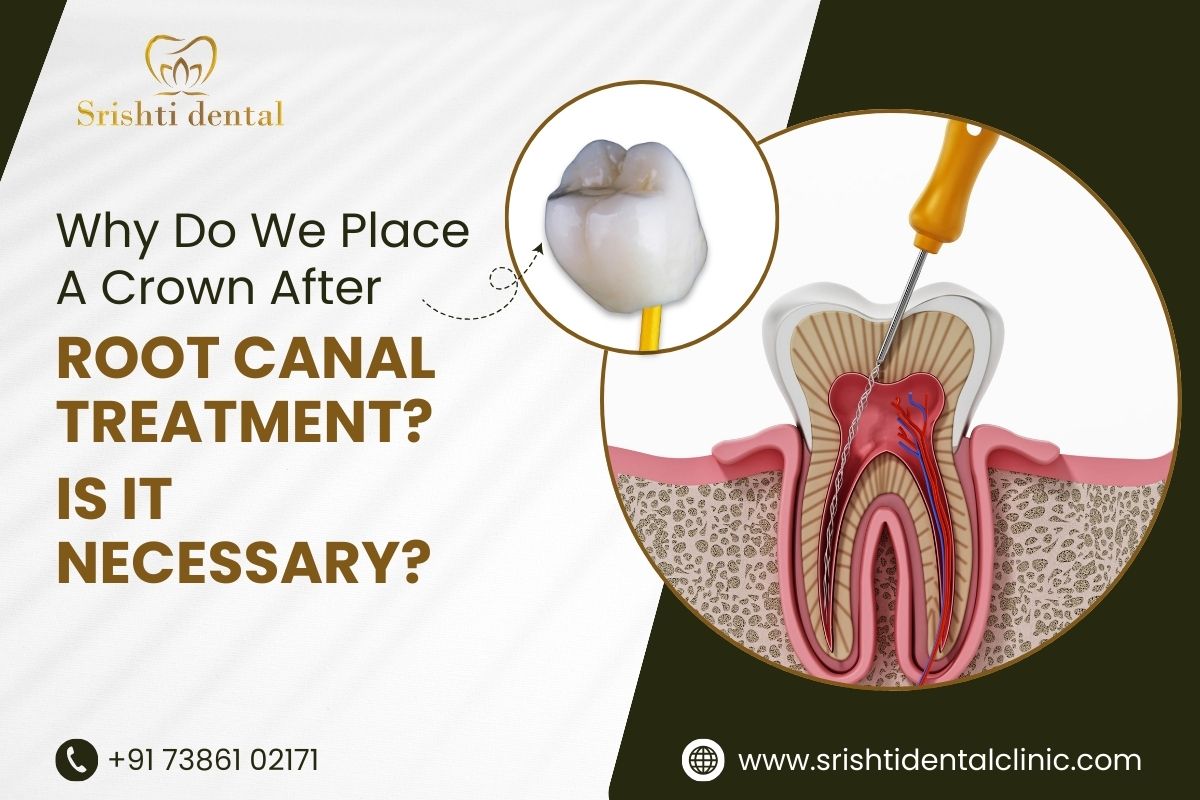Why Do We Place a Crown After Root Canal Treatment? Is It Necessary?
Suppose you’ve just gone through the root canal treatment. The tooth that once caused you so much pain is now free of infection and saved from decay. But wait—there’s still one more important step. The dental crown, your tooth's new armor!
So, why is this crown so important? Well, think of it like a suit of armor for your tooth after it's undergone a root canal treatment. The root canal treatment works its magic inside the tooth, but a crown is needed to protect what’s left on the outside. It’s the dynamic duo that ensures the tooth stays in one piece, ready to face the daily grind of chewing and talking.
What Happens After a Root Canal?
Root canal therapy essentially saves your tooth by removing the infected pulp inside. But once the infection is gone, you’re left with a tooth that’s a bit... well, fragile. Think of it as a house with a great foundation but a crumbling roof. Without a crown, your tooth is at risk of breaking or cracking over time, especially if it’s a back tooth that’s under a lot of pressure from chewing.
A root canal-treated tooth is technically "dead." No more blood flow, no more nourishment. This makes the tooth much more brittle and prone to fractures.

What’s a Dental Crown, Anyway?
A dental crown is like a cap or a jacket that fits snugly over the tooth to keep it safe and strong. It’s especially important for back teeth, which bear the brunt of your bite. Without that crown, they’re more likely to crack under pressure, leaving you with a bigger dental headache—literally.
Why Is a Crown After Root Canal Essential?
Here’s the deal: when a tooth undergoes root canal treatment, it becomes much weaker. In fact, research has shown that a root canal-treated back tooth is six times more likely to crack than an untreated tooth. That’s a huge risk! Crowning your tooth adds that extra layer of security, giving you a much better chance of keeping your tooth in the long run.
The Consequences of Skipping the Crown
Imagine this: you don’t put a crown on your treated tooth, and before long, it cracks just below the gum line. Now, instead of a simple fix, you might need to remove the tooth entirely and replace it with an implant.
And here’s a fun fact: the cost of a dental crown is a whole lot less than the price of an implant. So, why take the risk?
What’s So Special About a Crown After a Root Canal?
- To Keep Your Tooth from Shattering: After a root canal, your tooth is more fragile. A crown provides that much-needed protection to prevent chips or cracks.
- To Avoid Sensitivity: Even after a root canal, some nerves might still cause sensitivity to hot and cold. A crown seals it off and helps avoid sensitivity.
- To Keep Your Tooth Looking Great: Some teeth can become discolored after a root canal, but a crown can restore a natural, white appearance, matching your other teeth.
- To Prevent Future Infection: Root canal-treated teeth are more susceptible to infection. A crown helps seal off the tooth, preventing any chance of re-infection.
- Because Your Tooth Has a History: If your tooth has had a filling or suffered decay before, it’s already a bit vulnerable. A crown is the best way to protect it from further damage.
Root canal treatment is a hero in saving your tooth, but the crown is like the final act of heroism that ensures your tooth stays strong and healthy. It’s not just about protecting your tooth; it’s about keeping your smile intact for the long run. So, don't skip that crown—it’s your tooth’s best friend! If you are looking for a root canal treatment in Madhapur, look no further than Srishti Dental Clinic for effective and reliable results.



